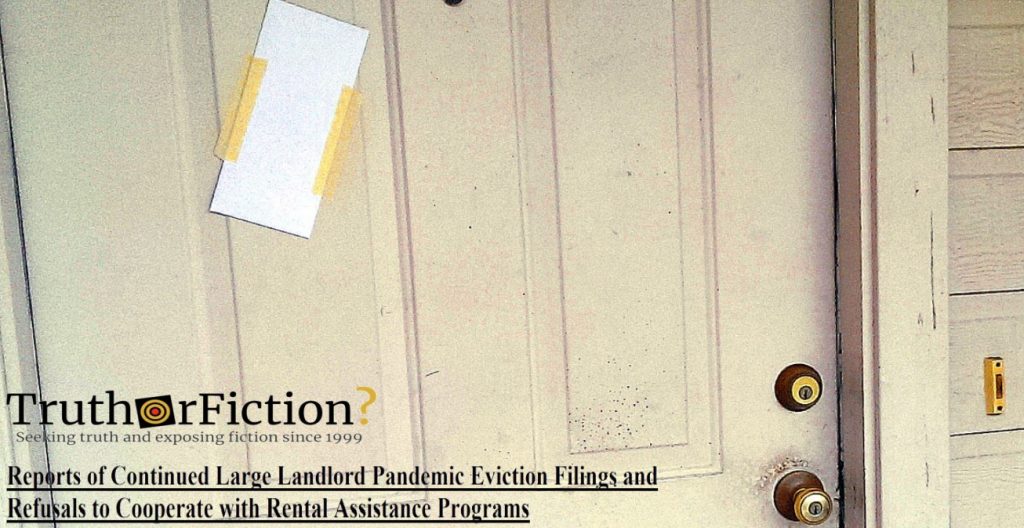Four property management companies accounted for nearly 15,000 eviction filings in the United States as the COVID-19 pandemic raged on, according to a House investigation — nearly triple the amount that had previously been reported.
Their practices even extended to deceptive reports to Child Protective Services in order to get families evicted.
Fact Check
Claim: Corporate Landlords Accused of Abusive Eviction Practices
Description: Four property management companies: Invitation Homes, Pretium Partners, The Siegel Group, and Ventron Management have been accused of nearly triple eviction filings, abusive eviction practices, and non-compliance with eviction moratoriums and federal rent assistance programs during the COVID-19 pandemic.
The House subcommittee studying the effects of the pandemic singled out Invitation Homes, Pretium Partners, The Siegel Group, and Ventron Management in a report released on July 28 2022, accusing them of failing to “fully comply” with both a moratorium on evictions instituted by the Centers for Disease Control as well as federal rent assistance programs.
“While the abusive eviction practices documented in this report would be condemnable under any circumstances, they are unconscionable during a once-in-a-century economic and public health crisis,” committee chair Rep. James Clyburn of South Carolina said. “Rather than working with cost-burdened tenants, abiding by applicable eviction moratoriums, and accepting federal rental assistance, these companies — with properties across 28 states — expedited evictions above all else.”
According to the report, the four companies initiated 14,744 “eviction actions” between May 2020 and July 2021, even as their businesses flourished:
Invitation Homes reported record profits during this period, Pretium Partners acquired thousands of new properties, and both Siegel and Ventron received millions of dollars in Paycheck Protection Program funds. Siegel’s records also show that the company experienced almost no revenue decline even during the most disruptive early period of the pandemic.
Clyburn will also refer each of the companies for separate investigations into what the committee called deceptive practices; Invitation Homes, for example, was referred to Fannie Mae (which the committee said provided it with “$1 billion in financing” in 2017) for downplaying the number of evictions of its tenants:
Invitation Homes told a Fannie Mae representative in March 2021 that only 6 percent of the company’s eviction filings in the previous six months resulted in “residents losing their housing,” but the company’s own data for October 2020 through March 2021 show that approximately 27 percent of tenants whom it filed to evict in that period lost their housing either through court-ordered eviction or because they vacated or moved out of their homes after the eviction case was filed.
The committee also reffered the Siegel Group to not only the Consumer Financial Protection Bureau (CFPB) and the Federal Trade Commission (FTC) for further investigation.
“[Both agencies] warned against deceptive and unfair practices like this, but it is not clear that enforcement actions were prompt enough to deter such behavior from causing tenants to lose their homes,” the report said. “Both enforcement entities and state and local governments disbursing federal aid must work to ensure that companies to not engage in such deceptive behavior in future crises.”
That company was also referred to the Texas Department of Family and Protective Services for “repeatedly directed property and regional managers to take actions intended to deceive tenants into the belief that the CDC eviction moratorium no longer protected them from eviction.” The committee found that a company executive directed managers at a Siegel property in Texas to “use baseless reports to Child Protective Services” to force tenants out.
The report can be read in its entirety here.

